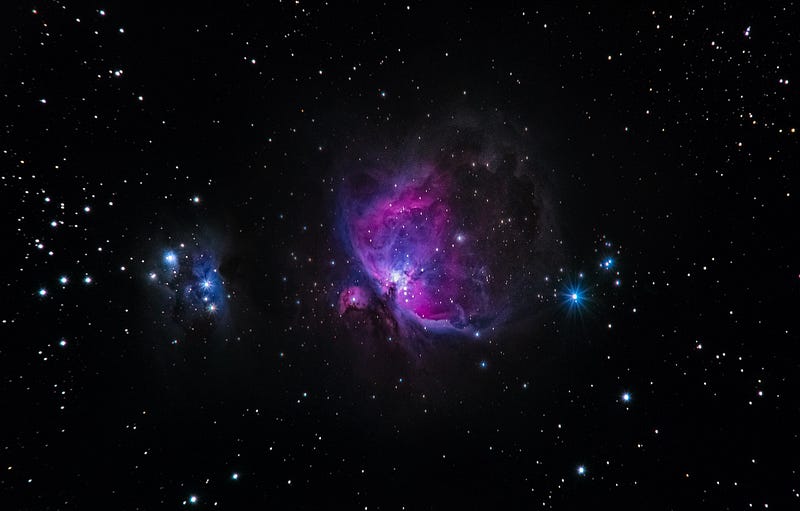Exploring the Cosmic Mystery: Are We Alone in the Universe?
Written on
Chapter 1: The Enigma of Our Existence
Are we truly the only beings in this vast universe? The twinkling stars that adorn our night sky might seem like mere luminous dots, yet science reveals that our galaxy, the Milky Way, hosts millions of them.
Recently, have you noticed the stunning images broadcast from the James Webb Space Telescope? This cutting-edge telescope, which supersedes the aging Hubble, employs infrared technology to unveil a far broader perspective of the cosmos, indicating that there are far more galaxies out there than we ever anticipated.

As I ponder the implications of this fresh perspective, I can’t help but feel overwhelmed. The universe is indeed vast, and we are merely one of countless galaxies. With the advent of this new technology, the estimated number of galaxies has at least doubled, and these discoveries are now visually documented.
While I may not be a science enthusiast like Sheldon or Leonard from “The Big Bang Theory,” the ramifications of these findings are clear and compelling. If the universe is not only significantly larger than we once believed but also teeming with galaxies, the probability of extraterrestrial life has surged dramatically.
Historically, humanity assumed that Earth was the universe's center. People once believed the Earth was flat and that the sun revolved around it—both notions have since been debunked through advancing knowledge.
As our understanding of the cosmos expands, it appears increasingly naive to assert that, among all the possible galaxies, stars, and planets, Earth is the sole harbor of life.
Section 1.1: The Shift in Perspective
Consider the odds: humans tend to be egocentric, often viewing our challenges and perspectives as the only valid ones. Many dismiss the idea of life on other planets based solely on the conditions present in our solar system.
Mercury and Venus are excessively hot, Mars is frigid, and the remaining planets lack an oxygen-rich atmosphere conducive to life as we know it.
Subsection 1.1.1: Rethinking Life's Conditions
Yet, it is shortsighted to assume that life elsewhere must mirror our oxygen-based existence. Oxygen, while essential for many forms of life on Earth, is also a well-known corrosive gas, leading to rust and decay.
It’s plausible that life on Earth evolved despite the presence of oxygen rather than because of it. There may be entirely different life forms—perhaps even intelligent ones—who view our planet as inhospitable due to its high oxygen levels.
But even if oxygen is crucial for life as we understand it, the sheer enormity of the universe, as revealed by the James Webb telescope, is astonishing.
Are we alone in the universe? - This video explores the possibilities of extraterrestrial life and the implications of recent astronomical discoveries.
Section 1.2: The Arrogance of Assumption
Given the multitude of newly discovered galaxies and stars captured by this advanced telescope, it seems rather presumptuous to claim that Earth hosts the only intelligent beings in existence.
The notion that we are the sole bearers of intelligence in this expansive universe is profoundly thought-provoking and challenges our understanding.
Chapter 2: The Implications of Discovery
Are we alone in the universe? - This video delves into the vastness of space and the scientific inquiries that suggest life may exist beyond Earth.
Reflecting on this topic truly expands the horizons of our imagination. The question remains: what are the chances that we are the only intelligent life forms in the universe?